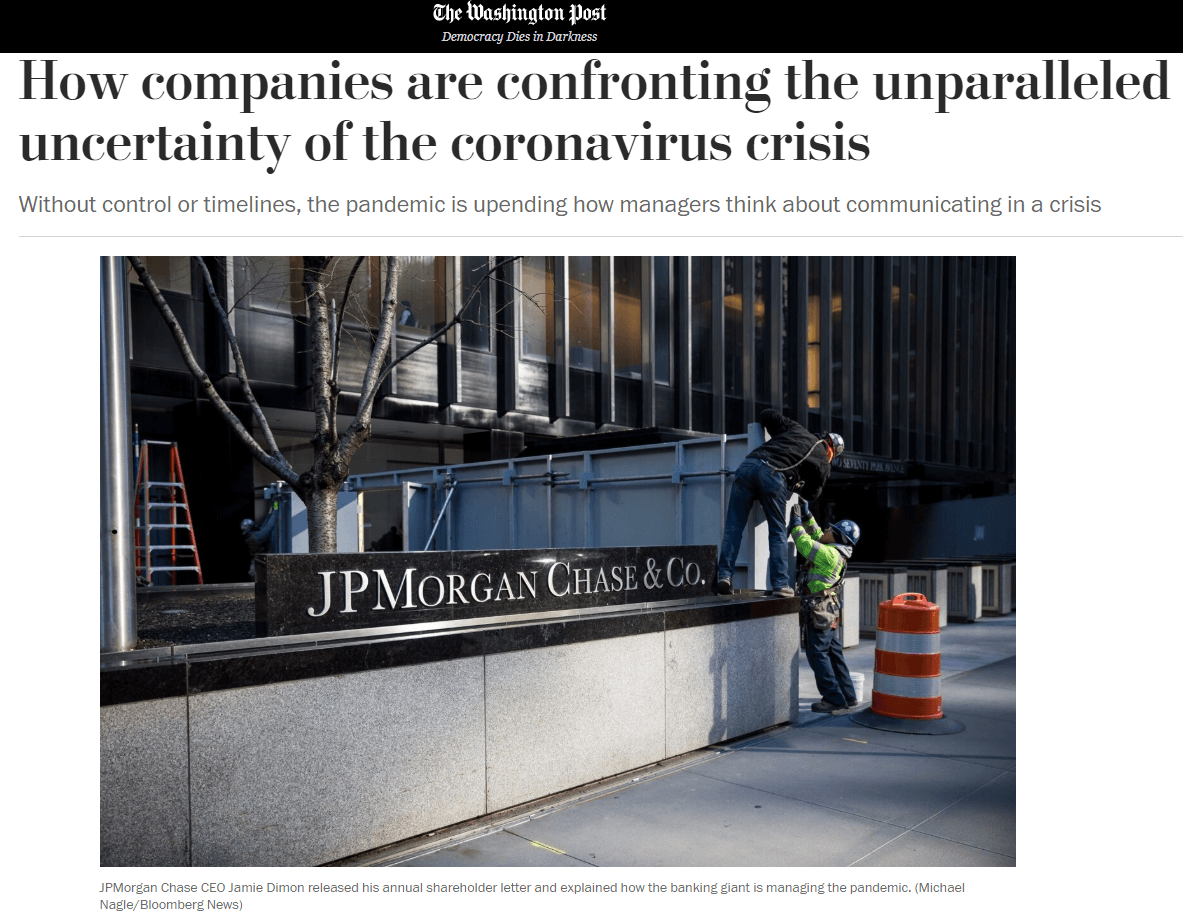Jena McGregor, The Washington Post, April 10, 2020

When JPMorgan Chase CEO Jamie Dimon released his widely read annual shareholder’s letter, he moved most of the typical charts and discussion about the company’s performance to the end, focusing instead “on issues that relate to our current crisis.”
His 23-page letter explained how the banking giant was dealing with the coronavirus pandemic, detailing different economic scenarios, explaining what it’s doing for employees and customers, and discussing the strength of its liquidity and balance sheet. But Dimon also wrote, “We do not know how this crisis will ultimately end, including how long it will last, how much economic damage it will do, or how fast or slow the recovery will be.” The “actual new crisis,” Dimon wrote, “while it shares attributes with what is being stress tested — is dramatically different from the expected.”
In virtual boardrooms across America, managers are confronting unprecedented uncertainty as they try to communicate — with their investors, their employees and their customers — amid the all-consuming scope and scale of the pandemic. Finely tuned scenario plans are being upended, project timelines are getting cast aside and conventional playbooks are proving insufficient as managers face a health and economic crisis with no modern parallel.
In some cases, “we are no longer in crisis management, we are in chaos management,” said Davia Temin, eponymous founder of a reputation and management consulting firm. “You can do certain things and mitigate a crisis. This is out of our hands to some degree now.” […read more]

